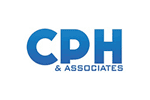
Protecting your clients is your job. Even when you’re doing your best, blame can be placed unfairly. The most common type of lawsuit a trainer will face is failure to instruct. This essentially is a client suing the trainer saying they did not provide the proper guidance or instruction and are negligent in some way for an injury.
To illustrate, let’s say you’re demonstrating to a client the proper form for a squat. You instruct your client to keep their spine stable while performing a deadlift, but they simply can’t execute the movement without collapsing through the spine. Despite their not following your instruction, they have an injury and may feel that it is your fault.
Two ways to protect your job
#1 Insurance
The first item is a solid fitness insurance policy. You want to look for one that has unlimited defense coverage. This means that the insurance company has no limit on the amount that they will spend on your defense. This is great for claims that you believe have no merit and that you’ll ultimately win, but nonetheless accrue defense costs. You’ll also want to make sure the policy is an occurrence coverage. This means that your coverage is for a lifetime.
The other form of insurance, claims-made insurance, requires that both the incident and the lawsuit filing occur while your policy is effective with your carrier. If someone were to sue you for an injury several months after you stop your policy, the claim would not be covered.
Having fitness insurance is a way for you to move the liability to your insurance carrier. There is a second form of protection available to you.
#2 A waiver or release of liability
A waiver or release of liability can move responsibility to the client. Having your client sign a waiver relinquishes their ability to sue you for an ordinary act of negligence—though there are limitations to this.
Waivers commonly vary state by state as to their efficacy and in many cases are situational in that a court may still have to treat incidents on a case-by-case basis. Despite those limitations, a waiver could be what stands between you having to go to court or not. It’s good form to have a client sign one and prudent to have an attorney who specializes in these waivers review yours prior to requiring a client to sign it.
Both having liability insurance and having your clients sign a waiver won’t necessarily mean that you’ll never face a lawsuit in your career, but they are two forms of protection well worth having in case you do.
NFPT has endorsed CPH and Associates as the best fit for their members. Please feel free to contact us directly with any questions you may have in regards to the coverage or the cost.

CPH & Associates is proud to be the Professional Liability Insurance partner of NFPT. A policy with CPH brings peace of mind, so you can focus on providing your clients with the highest quality of care. Learn more about CPH and the importance of carrying personal trainer insurance by getting an instant quote and talking with a representative.






